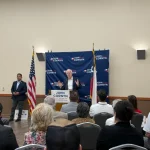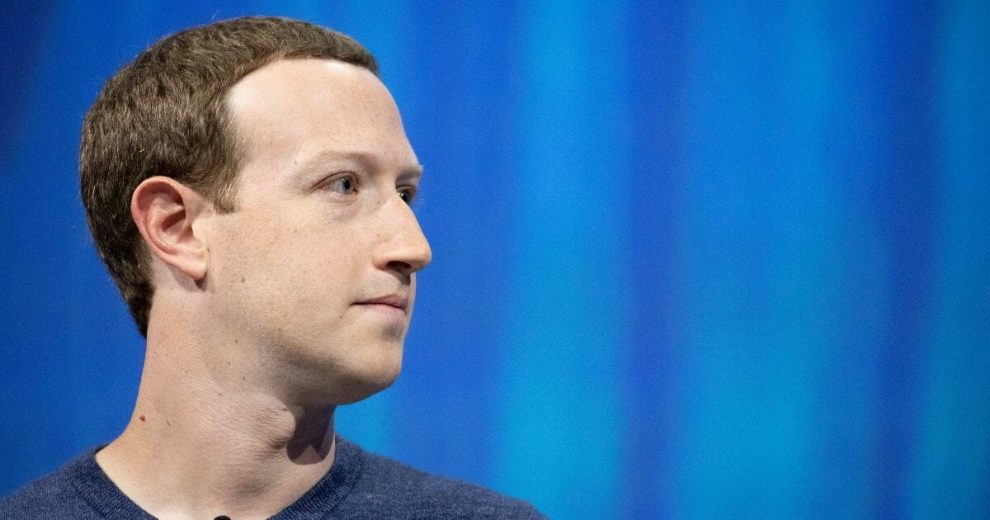Throughout 2020, Democrats have denounced Facebook with growing ferocity as a “right wing echo chamber” with a “conservative bias” that’s giving an edge to Donald Trump in November.
But Facebook says there’s a reason why right-wing figures are driving more engagement. It’s not that its algorithm favors conservatives — the company has long maintained that its platform is neutral. Instead, the right is better at connecting with people on a visceral level, the company says.
“Right-wing populism is always more engaging,” a Facebook executive said in a recent interview with POLITICO reporters, when pressed why the pages of conservatives drive such high interactions. The person said the content speaks to “an incredibly strong, primitive emotion” by touching on such topics as “nation, protection, the other, anger, fear.”
“That was there in the [19]30’s. That’s not invented by social media — you just see those reflexes mirrored in social media, they’re not created by social media,” the executive added. “It’s why tabloids do better than the [Financial Times], and it’s also a human thing. People respond to engaging emotion much more than they do to, you know, dry coverage. …This wasn’t invented 15 years ago when Mark Zuckerberg started Facebook.”
In the final stretch of the 2020 campaign, the Facebook posts with the most engagement in the United States most days — measured by likes, comments, shares and reactions — are from conservative voices outside the mainstream media: Dan Bongino, Ben Shapiro, David Harris, Jr., Franklin Graham and “Blue Lives Matter,” according to the Facebook-owned tool Crowdtangle. Trump’s personal page also regularly makes the top of the list, in effect allowing him to become a publisher in his own right and navigate around the traditional media.
Left-wing posts make the daily top-25 much less frequently. Former Labor Secretary Robert Reich and the Facebook savvy Occupy Democrats are among the pages that occasionally hit such levels of engagement.
The growth of right-wing content on the platform has enraged liberals, who accuse the social media giant of kowtowing to the right out of fear of being painted as biased toward the left. It has also ratcheted up the brawl between the left and the right over the social network weeks before the election, as both parties try to influence the platform’s policies.
After Trump effectively leveraged Facebook in 2016 to help make up for a significant cash disadvantage, it has become a pivotal theater in the electoral war. Trump and Biden have spent over $173 million for ads on the platform so far and are expected to spend tens of millions more, according to the company’s political ad tracker (Trump over $109 million and Biden over $64 million).
But ads are only one battleground. Both parties are fighting for high engagement in organic content, which is much more widely seen. Essentially, it’s the difference between “earned media” — or coverage of the candidates by news outlets — and paid TV ads.
This focus on organic posts is why the success of Bongino and Shapiro has caused so much frustration on the left, along with accusations that Facebook has a conservative bias.
The liberal group Media Matters, which is mostly known for tracking conservative TV and radio, now monitors 5,250 Facebook pages and groups that they’ve determined are either influential or of concern, according to spokesperson Laura Keiter. “There’s something [at Facebook] that reflexively or intentionally is mollifying the right wing,” said Angelo Carusone, president of Media Matters.
Adam Conner, who worked for Facebook in Washington from 2007 to 2014 and is now vice president of Tech Policy at the liberal Center for American Progress Action, told POLITICO that “it’s absurd for Facebook to say this is just something that’s playing out in a neutral way. This feels like an abdication of responsibility.” He added that “Facebook is not a mirror — the newsfeed algorithm is an accelerant.”
The Biden campaign also blasted Facebook for arguing that the right-wing’s success on the platform simply reflects society.
“Facebook’s platform is a mirror alright — a fun house mirror,” campaign spokesperson Bill Russo said. “One that has twisted and distorted our world and our politics into something barely recognizable, where conspiracy theories and disinformation run rampant. This is not a feature of our society that we must simply accept. It is a choice to create an algorithm that feeds the distrust and polarization that are tearing us apart.”
Republicans have been just as critical of Facebook in the run-up to the election. This week, Trump spoke alongside nine state attorneys general and said the government is reviewing “concrete legal steps” against social media sites for limiting the reach of conservatives “at the urging of the radical left.”
Facebook says the most engaged content isn’t necessarily the most viewed — political fare, the company maintains, is actually a small percentage of what people see on the platform. Users’ newsfeeds are filled with more nonpartisan, pop culture content than the engagement list suggests, according to the company’s head of newsfeed, John Hegeman.
Facebook does not provide data on which articles and posts achieve the most reach but says it is trying to find a way to make that information publicly available.
The Facebook executive argued that frustration on the left on how to counter right-wing populism is another instance of social media reflecting an existing dynamic, rather than creating it.
“If you’re a far-left partisan then why can’t you fight fire with fire?” the executive said. “That debate among progressives — [and] I count myself as a center-left progressive — is as old as the hills. All center-left campaigners and politicians always ask themselves, ‘Why can’t [we] seem to rile their supporters as much as right-wing populists have?’”
Some conservatives also argue that they invested in the platform early on as a workaround to the left-leaning mainstream news media.
“What’s really going on here is obvious to anyone paying attention: The mainstream media wants to censor content from other sources in an attempt to reestablish the control of the news narrative they lost when the internet broke up their monopoly,” John Bickley, editor in chief of the conservative site The Daily Wire, wrote Thursday. The Daily Wire was the top news publisher on all of Facebook in July and August this year when measured by engagement, according to NewsWhip.
In an email to POLITICO, Bickley added: “It also makes sense to me that social media users would engage more with content that has a clearer perspective or stronger take on stories — and particularly those that push back on predominant narratives with glaring flaws.” Ben Shapiro, founding editor in chief of The Daily Wire, has logged over 175 million engagements on his Facebook page since June 21 compared with just 27 million for The New York Times’ Facebook page, per CrowdTangle.
After years of Washington regarding Facebook as an amusing curiosity, its founder and CEO Mark Zuckerberg has struggled to counter the barrage of criticism over Facebook’s role in the 2016 election and American politics more broadly.
Members of both parties are increasingly threatening to dismantle the so-called Section 230 protections that shield Facebook and other internet companies from liability.
“I’ve never been a fan of Facebook, as you probably know. I’ve never been a big Zuckerberg fan. I think he’s a real problem,” Biden told The New York Times editorial board last year. “Section 230 should be revoked, immediately should be revoked.” The Trump administration this week introduced a bill to chip away at those protections.
Liberals are also still smarting over the role Facebook played in Hillary Clinton’s surprise defeat. But Republicans counter that Democrats had no problem with the company in 2012 when Facebook’s engineers allowed the Obama campaign to get around some internal safeguards protecting user privacy. Facebook would “sigh and say, ‘You can do this as long as you stop doing it on Nov. 7’,” Will St. Clair, who helped write the Obama campaign’s Facebook program, told The New York Times in 2013.
The company, with its largely liberal workforce, has been defensive about the censorship allegations from Republicans — and also lax in enforcing its rules with some popular conservative pages. In one case, the company erased “strikes” and downgraded violations for posting misinformation by Trump surrogates Diamond & Silk, according to NBC News. Democrats, meanwhile, argue that it’s ridiculous for conservatives to claim that Facebook is suppressing content when many of their pages are so popular.
Facebook employees have challenged Zuckerberg in companywide Q&A’s on these topics, and the CEO has pushed back against his progressive workforce.
“The community we serve tends to be, on average, ideologically a little bit more conservative than our employee base,” Zuckerberg said during one such forum on June 18, according to a report this week from The Verge. “Maybe ‘a little’ is an understatement. … If we want to actually do a good job of serving people, [we have to take] into account that there are different views on different things, and that if someone disagrees with a view, that doesn’t necessarily mean that they’re hateful or have bad intent.”
Story cited here.
























